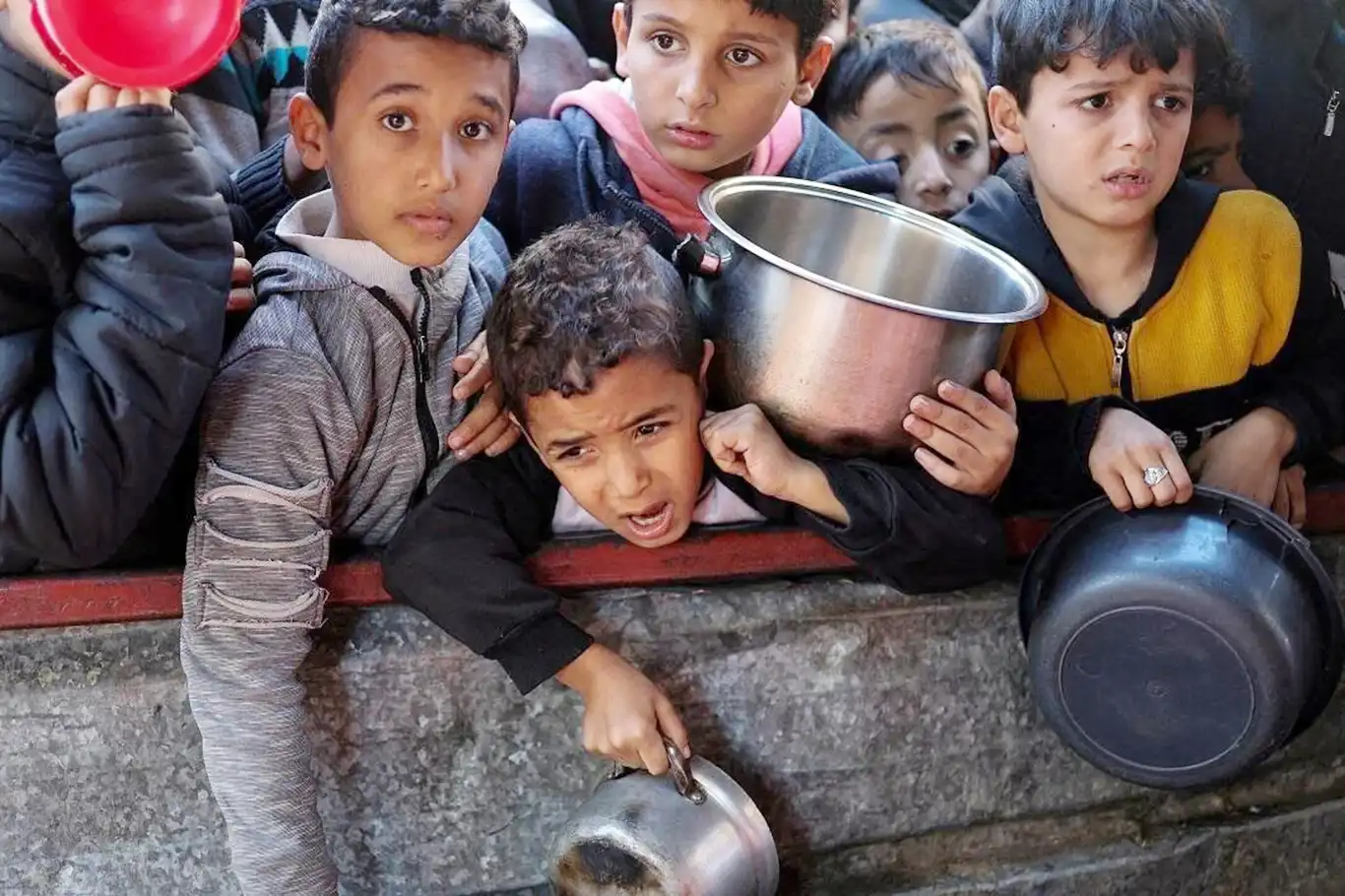WFP warns: Hunger spreads, Gaza civilians dying searching for food


The United Nations World Food Programme (WFP) has issued one of its most urgent warnings yet, declaring that humanitarian needs in Gaza are “greater than ever” while aid efforts remain critically constrained due to the ongoing blockade and military attacks.
Carl Skau, Director of Operations at WFP, shared the harrowing update following his fourth visit to the besieged enclave since the Israeli onslaught began on October 7, 2023. In a statement on X (formerly Twitter), Skau described the situation as catastrophic: “The needs in Gaza today are greater than ever, and our ability to respond has never been more constrained.”
Skau painted a grim picture of daily life in Gaza, where hunger is deepening and desperation is driving civilians to fatal extremes. “Hunger is spreading, and people are dying simply searching for food,” he said, adding that the WFP’s local staff face the same starvation and danger as the population they are struggling to assist.
The WFP official revealed that aid workers in Gaza are risking their lives as they attempt to navigate combat zones to deliver food to starving families. “Our teams are often caught in the crossfire while escorting food convoys through active combat areas,” Skau said, highlighting the indiscriminate nature of Israeli bombardments that continue to target civilian infrastructure.
With fuel, spare parts, and basic communications equipment running dangerously low, the humanitarian lifeline is being choked by Israel’s suffocating blockade and refusal to open crossings. “We are running out of everything,” Skau warned, underscoring the urgency of immediate international intervention.
Skau reiterated the WFP’s readiness to respond robustly if a ceasefire is brokered. He cited the previous truce from January 19 to March 1, 2025, during which WFP was able to deliver 8,000 truckloads of aid into Gaza in just 42 days. “We can do so again,” he stated, “if a new agreement is reached.”
But Skau stressed that simply pausing the bombing is not enough. “Delivering aid requires security and the opening of all roads and entry points,” he said. “The ceasefire must also be a step toward lasting peace.”
Humanitarian organizations have increasingly described Israel’s blockade and targeting of Gaza’s food systems as a form of collective punishment and starvation warfare — a potential war crime under international law. WFP’s latest warning adds to mounting evidence that the siege on Gaza is not only killing through airstrikes, but through systemic deprivation.
More than 2 million Palestinians remain trapped in the tiny coastal strip, with the majority internally displaced, living in makeshift shelters, and surviving on minimal or no access to food, water, or medicine. Children are dying from malnutrition-related illnesses, while hospitals — themselves targets of Israeli attacks — are overwhelmed and undersupplied.
Despite the clear warnings from UN agencies, humanitarian groups, and human rights observers, international powers have largely failed to halt the onslaught or impose consequences on the Israeli regime. While aid workers risk their lives and civilians starve, calls for accountability and meaningful ceasefire mechanisms remain unanswered.
Carl Skau’s voice joins the growing chorus of alarm, appealing to the conscience of the world: “We are ready to deliver. We are willing to deliver. But we need the guns to fall silent, and the doors to open.”
As Gaza starves under blockade and bombardment, the question remains: How many more must die before the world acts? (ILKHA)
LEGAL WARNING: All rights of the published news, photos and videos are reserved by İlke Haber Ajansı Basın Yayın San. Trade A.Ş. Under no circumstances can all or part of the news, photos and videos be used without a written contract or subscription.
Gaza’s largest medical facility, Al-Shifa Hospital, is facing a catastrophic breakdown as a complete power outage caused by Israel’s ongoing fuel blockade has plunged the already overburdened hospital into darkness, placing the lives of hundreds of patients in immediate danger.
Gaza’s largest medical facility, Al-Shifa Hospital, is facing a catastrophic breakdown as a complete power outage caused by Israel’s ongoing fuel blockade has plunged the already overburdened hospital into darkness, placing the lives of hundreds of patients in immediate danger.
At least one person was killed and several others injured late Tuesday in violent clashes between security forces aligned with the Kurdistan Democratic Party (KDP) and members of the Herki tribe in the Khabat district of Erbil province, according to local sources.
The United Nations Office for the Coordination of Humanitarian Affairs (OCHA) has issued an urgent warning of a rapidly deteriorating humanitarian crisis in the Gaza Strip, driven by relentless Israeli airstrikes and a critical fuel shortage.